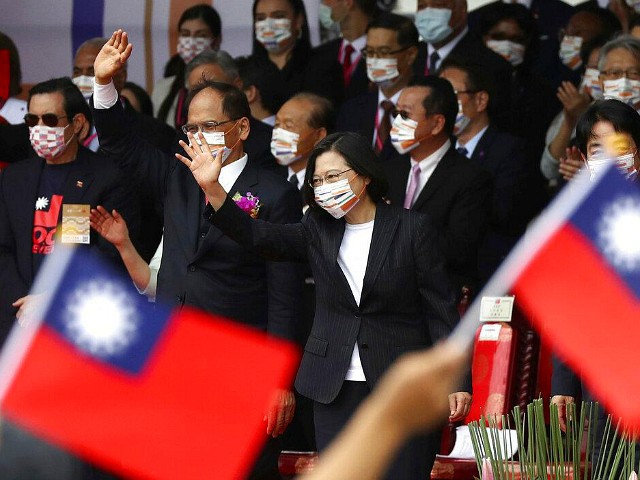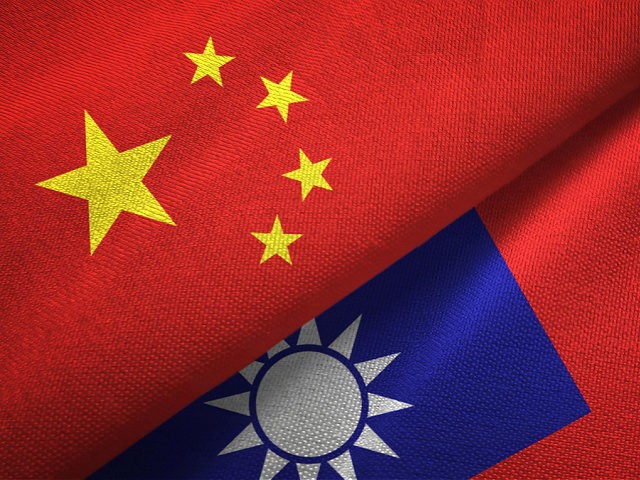China’s state-run Global Times on Wednesday dismissed recent Japanese government efforts to forge closer ties with Taiwan, suggesting that Beijing should “break the leg” of any third party like Tokyo that tries to interfere with the China-Taiwan relationship.
“[T]he Japanese government has been considering having an incumbent official with Japanese Ministry of Defense stationed in Taiwan island for the first time beginning this summer,” the Global Times wrote in an op-ed published on June 8.
“Japan is literally doing something that threatens China’s core national interests, and China will not remain indifferent,” the publication continued.
“We must remind Japan of what this step means. [The] Taiwan question is China’s internal affair. If an outsider wants to step in, we will ‘break its leg,'” the Chinese Communist Party-controlled newspaper threatened.
“Japan keeps flirting with China’s hot-button issues, such as the Taiwan question, and is reportedly aiming to send an active-duty defense official to Taiwan island to strengthen information-gathering capabilities,” the Global Times claimed separately in an article published on June 7.
The publication referred to an alleged plan by Japan’s government to station an “active duty” member of its defense ministry staff in Taipei at the Japan-Taiwan Exchange Association’s local office sometime this summer. The unverified report was originally published by Japan’s Sankei Shimbun newspaper on June 4 before being picked up by the online newspaper Taiwan News.
“Currently, one retired defense official is stationed in Taiwan, but the Japanese government wants to enhance its intelligence-gathering abilities in response to rising tensions across the Taiwan Strait [which separates Taiwan from China],” Taiwan News noted on June 4.
Taiwan’s Central News Agency (CNA) asked Japan’s Ministry of Foreign Affairs and Ministry of Defense about the report hours after its publishing. Both ministries said they could not comment on the matter since it pertained to “the internal operations of the Japanese government.”

Taiwan’s President Tsai Ing-wen, right, and Yu Shyi-kun, speaker of the Legislative Yuan, cheer with audience during National Day celebrations in front of the Presidential Building in Taipei, Taiwan, Saturday, Oct. 10, 2020. (AP Photo/Chiang Ying-ying)
Beijing considers Taiwan a province of China and has increasingly vowed to reunify the island with “the mainland,” i.e. China, in recent months. Taiwan is a sovereign island nation strategically located off China’s southeastern coast near overlapping territorial claims. It is situated a short distance southwest of Japan’s Senkaku Islands, which are likewise claimed by China. Beijing has increased its military presence near Taiwan and the Senkakus in recent months.
“Because we are close geographically, what could happen in Taiwan could likely be an issue for Japan, and in that case, Japan will have to take the necessary response to that situation,” Japanese Defense Minister Kishi Nobuo told CNN in an interview published in September 2021.
“Taiwan is located at the nexus of the East and South China Seas and it is geopolitically and strategically important. That’s why Taiwan’s peace and stability is not just important for this region, but to the international community as a whole,” Kishi explained.
“More than ninety percent of the energy that Japan uses is imported through the sea around Taiwan, so it’s important to maintain the maritime order and a free and open Indo-Pacific,” the defense minister noted.

COMMENTS
Please let us know if you're having issues with commenting.